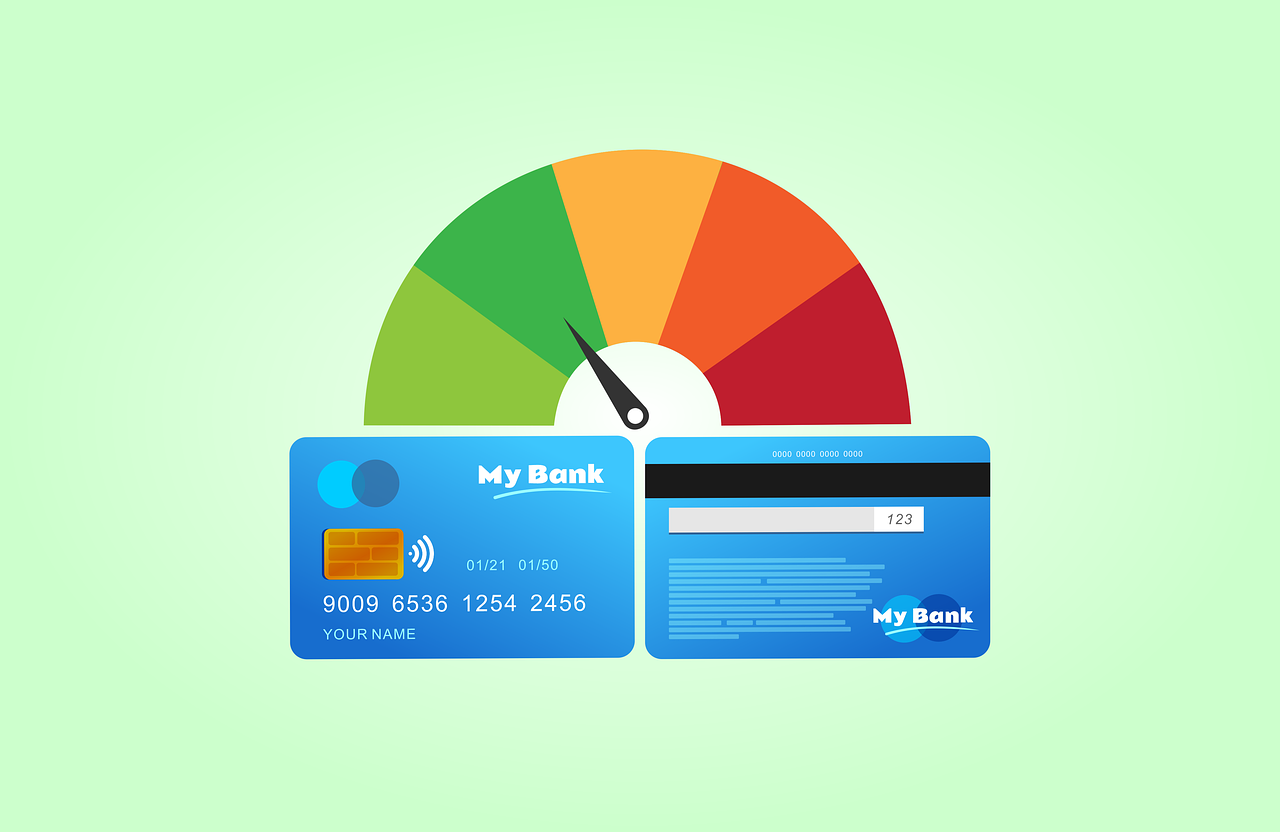If you’re looking to give your credit score a boost in the new year, we’ve got you covered. With a few simple steps, you can start improving your creditworthiness and setting yourself up for financial success. From paying bills on time to keeping credit card balances low, these actions can make a big difference in your credit score. So, let’s dive in and explore the strategies you can implement to achieve your credit score goals in the upcoming year.
Payment History
Pay bills on time
One of the most important factors in determining your credit score is your payment history. Making timely payments on all your bills is crucial to maintaining a good credit score. Late payments can have a significant negative impact on your credit, so it’s important to prioritize paying your bills on time. Set reminders for yourself or use automatic payment options to help ensure that you never miss a due date.
Set up payment reminders
In today’s busy world, it’s easy to forget about bill due dates. Setting up payment reminders can be a simple yet effective way to ensure that you never miss a payment. You can utilize calendar alerts on your phone or computer, or even set up automatic reminders through your banking app. By being proactive and setting up these reminders, you’ll have a better chance of staying on top of your payments and maintaining a positive payment history.
Consider automatic payments
If you find that you often struggle to remember to make your bill payments on time, setting up automatic payments could be a game-changer for you. Many companies and service providers offer this option, allowing you to have your monthly payments automatically deducted from your bank account. This not only saves you time and effort but also ensures that your payments are always made on time. Just be sure to monitor your bank account regularly to ensure that the automatic payments are processed correctly.
Credit Utilization
Pay down existing debt
Credit utilization refers to the percentage of your available credit that you are actually using. Ideally, you should aim to keep this percentage as low as possible. If you have existing debt, whether it’s credit card balances or loans, it’s important to focus on paying it down. By reducing your overall debt, you can lower your credit utilization ratio and improve your credit score.
Use credit sparingly
While it’s important to have access to credit, it’s equally important to use it responsibly. Using credit sparingly means only charging what you can afford to pay off in full each month. This shows lenders that you are responsible and able to manage your credit effectively. It’s generally recommended to keep your credit utilization below 30% to avoid negatively impacting your credit score.
Consider requesting a credit limit increase
If you’re having difficulty keeping your credit utilization ratio low, you may want to consider requesting a credit limit increase. By increasing your available credit, you can potentially lower your credit utilization ratio, as long as you continue to use credit responsibly. However, it’s important to exercise caution when requesting a credit limit increase and avoid increasing your spending habits because of the higher limit.

Credit Report Accuracy
Check credit reports regularly
Checking your credit reports regularly is an essential step in maintaining good credit. Your credit reports contain information about your credit history, including your payment history, credit utilization, and any negative marks or errors. By reviewing your credit reports, you can identify any inaccuracies or discrepancies that may be negatively affecting your credit score. You are entitled to one free credit report per year from each of the three major credit bureaus (Equifax, Experian, and TransUnion), so take advantage of this and review your reports annually.
Dispute any errors or inaccuracies
If you come across any errors or inaccuracies on your credit reports, it’s important to take action and dispute them. These errors could be as simple as a misspelled name or an incorrect address, but they could also be more significant, such as an account that doesn’t belong to you or a late payment that was incorrectly reported. Disputing these errors can be done online or through written correspondence, and the credit bureaus have a legal obligation to investigate and correct any errors within a reasonable timeframe.
Account Management
Keep old credit accounts open
Closing old credit accounts may seem like a good idea when trying to improve your credit, but it can actually have a negative impact. The length of your credit history plays a role in determining your credit score, and closing old accounts can shorten that history. Keeping these accounts open, even if you’re not actively using them, shows lenders that you have a longer-established credit history, which can be beneficial to your credit score.
Avoid opening new credit accounts
While it may be tempting to open new credit accounts to improve your credit mix or increase your available credit, it’s generally best to avoid doing so. Opening new accounts can result in hard inquiries on your credit report, which can negatively impact your credit score. Additionally, having too many open credit accounts can make it more challenging to manage your overall credit and may increase the risk of overspending.
Be cautious with closing accounts
Closing credit accounts should be done thoughtfully and strategically. If you have a credit card with an annual fee that you no longer use, it may make sense to consider closing it. However, before making that decision, consider the potential impact on your credit score. If the card is one of your oldest accounts or it significantly contributes to your total available credit, closing it may lower your credit score. It’s important to weigh the pros and cons and consult with a financial advisor if you’re unsure of how closing an account could affect your credit.

Credit Mix
Diversify credit with different types of loans
Having a diverse credit mix can positively impact your credit score. Lenders want to see that you can responsibly manage different types of credit, such as credit cards, mortgages, and personal loans. If you only have one type of credit, such as credit cards, consider diversifying your credit mix by taking on a different type of loan. However, it’s important to ensure that you’ll be able to make the payments on any new loans before moving forward with this strategy.
Consider a secured credit card
If you’re having difficulty obtaining traditional credit, such as a credit card or loan, a secured credit card can be a valuable tool in building or rebuilding your credit. These cards are secured by a cash deposit that serves as your credit limit, so there is less risk for the lender. By consistently making on-time payments with a secured credit card, you can demonstrate your ability to responsibly manage credit, which will ultimately help improve your credit score.
Hard Inquiries
Minimize new credit applications
When you apply for new credit, whether it’s a credit card, loan, or mortgage, the lender will typically pull your credit report, resulting in a hard inquiry. While one or two hard inquiries may not have a significant impact, numerous inquiries within a short period can be seen as a red flag by lenders. Minimizing new credit applications can help protect your credit score and show lenders that you’re not taking on excessive debt.
Apply for credit strategically
If you do need to apply for new credit, it’s important to do so strategically. Research different lenders and their requirements to find those that are most likely to approve your application. Applying for credit you’re confident you’ll be approved for can minimize the risk of unnecessary hard inquiries and potential rejections. Utilize pre-approval offers or consult with a financial advisor to ensure you’re making informed choices when it comes to new credit applications.

Debt-to-Income Ratio
Keep debt levels manageable
Your debt-to-income ratio is the percentage of your monthly income that goes towards paying off debt. A high debt-to-income ratio can negatively impact your credit score and make it challenging to obtain new credit. Keeping your debt levels manageable is essential for maintaining a healthy financial situation. If your debt-to-income ratio is high, consider creating a plan to pay off your debts or explore options such as debt consolidation to help make your payments more manageable.
Increase income or reduce debt to improve ratio
If your debt-to-income ratio is high, there are two primary approaches to improve it: increasing your income or reducing your debt. Increasing your income can be achieved through various means, such as taking on a second job, starting a side business, or asking for a raise at your current job. On the other hand, reducing your debt can be done by implementing a debt repayment plan, negotiating lower interest rates, or seeking professional assistance through credit counseling. By taking action to improve your debt-to-income ratio, you can positively impact both your credit score and your overall financial health.
Financial Responsibility
Create a realistic budget
Creating a realistic budget is an essential step in practicing financial responsibility and improving your credit score. By tracking your income and expenses, you can gain a better understanding of where your money is going and identify areas where you can cut back. Your budget should include all necessary expenses, such as housing, utilities, and groceries, as well as debt payments and savings goals. By living within your means and adhering to your budget, you can make progress towards paying off debts and improving your financial situation.
Build an emergency fund
Having an emergency fund is crucial in maintaining financial stability and reducing reliance on credit. Unexpected expenses can arise at any time, and having money set aside for emergencies can help prevent you from going into debt to cover those expenses. Start by setting a small goal, such as saving $500 or $1,000, and gradually work towards building a fund that can cover three to six months’ worth of living expenses. Having this safety net not only provides peace of mind but also shows lenders that you are financially responsible and capable of handling unexpected financial situations.
Pay off collections or past due accounts
If you have collections or past due accounts, it’s important to prioritize paying them off. These negative marks can have a significant impact on your credit score and make it challenging to obtain new credit. Reach out to the creditor or collection agency to discuss repayment options, negotiate a settlement, or set up a payment plan. Paying off these accounts shows lenders that you are taking responsibility for your debts and working towards improving your credit.

Credit Counseling
Seek professional credit counseling if needed
If you’re feeling overwhelmed by your financial situation or struggling to manage your debt effectively, seeking professional credit counseling can be a wise decision. Credit counselors can provide guidance and support in developing a personalized plan to improve your credit and manage your debts. They can help negotiate with creditors, provide financial education, and offer strategies to build better credit habits. Just be sure to do thorough research and choose a reputable credit counseling agency that has your best interests in mind.
Patience and Persistence
Understand it takes time to rebuild credit
Improving your credit score is a journey that requires patience and persistence. It’s important to understand that rebuilding credit doesn’t happen overnight. It takes time to demonstrate consistent and responsible credit behavior. As you implement the steps outlined above, keep in mind that it may take several months or even years to see significant improvements in your credit score. Stay committed to your goals and don’t get discouraged if progress seems slow. With time and persistence, you can achieve a healthier credit score.
Stay committed to improving credit score
Improving your credit score is a long-term commitment. It’s not a one-time action but a continuous effort to maintain positive financial habits. Once you’ve implemented the necessary changes to improve your credit, it’s important to stay committed to those habits. Continue making payments on time, keeping your credit utilization low, and monitoring your credit reports regularly. By staying committed to improving your credit score, you can enjoy the long-term benefits of better financial opportunities and a higher credit score.
In conclusion, improving your credit score requires a combination of responsible financial behavior and strategic actions. By focusing on areas such as payment history, credit utilization, credit report accuracy, account management, credit mix, hard inquiries, debt-to-income ratio, financial responsibility, seeking credit counseling if needed, and maintaining patience and persistence, you can make significant progress towards achieving a healthier credit score. Remember to review your individual financial situation and consult with a financial advisor or credit counselor for personalized advice. With dedication and consistency, you can set yourself on a path towards financial success and a brighter credit future.

